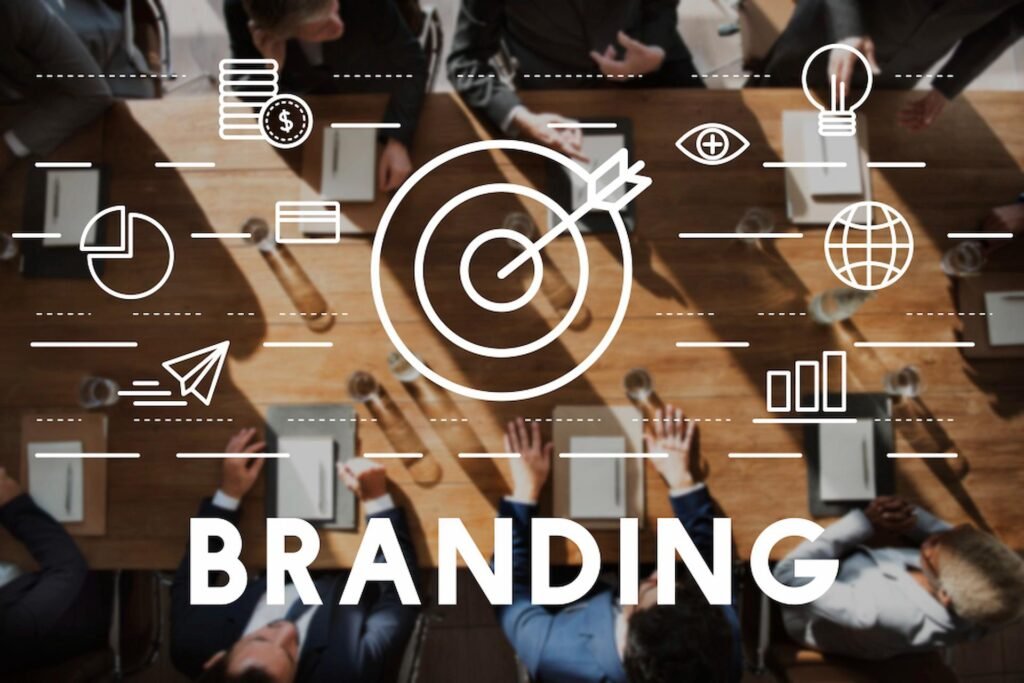Understanding Branding Beyond the Logo
When people think of branding, they often picture a logo, colour scheme, or slogan. But in the manufacturing sector, branding runs much deeper. It’s not just about how a company looks — it’s about how it’s perceived. Effective branding for manufacturers defines who they are, what they stand for, and why customers should trust them. In an industry that often focuses on technical excellence, branding builds emotional connections and long-term relationships. It helps manufacturers communicate their reliability, innovation, and commitment to quality. In essence, branding gives manufacturers a distinct identity in a crowded marketplace, ensuring they stand out not just for what they produce, but for what they represent.
The Power of Consistency
Consistency is the cornerstone of strong branding. For manufacturers, this means maintaining a unified message across every touchpoint — from packaging and product design to marketing materials and client communication. Consistent branding reinforces credibility. When customers see the same message, tone, and values repeated, they start to associate those qualities with trust and stability. For example, a manufacturer that consistently highlights precision and durability must ensure these traits are evident in both their production and presentation. Inconsistent messaging, on the other hand, can dilute brand perception. In a competitive sector where contracts and partnerships often rely on trust, a consistent brand presence signals reliability and professionalism — two qualities clients value most.
Crafting a Clear Value Proposition
Manufacturers operate in a results-driven world. Clients are often more interested in efficiency, reliability, and technical capability than flashy marketing. That’s why a clear value proposition is essential. It tells potential clients exactly what the company does better than the rest. Whether it’s cutting-edge technology, sustainable practices, or superior materials, the value proposition should be clear, concise, and backed by evidence. Effective branding for manufacturers translates these strengths into messages that resonate with decision-makers. Rather than relying on generic statements, manufacturers benefit from highlighting specific achievements or unique processes that demonstrate expertise. When clearly defined, a value proposition serves as the foundation for all brand communication.
Building Trust Through Transparency
Trust is non-negotiable in manufacturing. Clients depend on accurate specifications, consistent quality, and timely delivery. To build this trust, transparency must be a core branding element. Being open about processes, certifications, and standards reinforces credibility. Manufacturers can use their branding to demonstrate accountability — whether through case studies, client testimonials, or sustainability reports. In a sector often perceived as rigid and traditional, transparency can make a brand appear more human and approachable. It tells clients that the company values honesty and long-term relationships over short-term gains. Ultimately, strong branding in manufacturing isn’t about polished words; it’s about proven actions that align with the brand’s message.
The Role of Storytelling in Industrial Branding
Manufacturing may seem purely technical, but storytelling plays a decisive role. Every company has a story — how it started, what challenges it faced, and how it continues to innovate. Sharing that story can make a brand relatable and memorable. A well-crafted brand narrative connects the company’s heritage with its modern achievements, showing progress and purpose. Storytelling helps manufacturers move beyond numbers and specifications to highlight their human side—the people, passion, and principles that drive their work. This emotional connection sets the brand apart and can turn customers into long-term partners. In this sense, effective storytelling is not a marketing trick but a meaningful part of manufacturers’ branding.
Innovation as a Branding Strength
Innovation is at the heart of manufacturing success. Yet, many firms fail to communicate their innovations effectively. A strong brand showcases innovation not as a boast but as evidence of progress and adaptability. Whether it’s developing new materials, improving efficiency, or adopting greener technologies, innovation should be central to a manufacturer’s brand story. It positions the company as forward-thinking and responsive to industry changes. Clients want to partner with manufacturers that stay ahead of the curve — and branding is the ideal platform to highlight this mindset. By aligning innovation with clear values, manufacturers can demonstrate both capability and vision, enhancing their brand’s authority and appeal.
Internal Branding and Employee Engagement
Branding doesn’t stop at the client-facing side; it begins within the company. Employees are the first ambassadors of any brand. When staff understand and believe in the brand’s purpose, they communicate it naturally in their work and interactions. This is especially true in manufacturing, where teamwork, precision, and pride in craftsmanship are crucial. Internal branding initiatives — such as shared goals, consistent communication, and recognition programmes — help align employees with the brand identity. When employees embody the company’s values, it strengthens trust externally as well. Ultimately, successful branding for manufacturers grows from within, driven by people who live the brand every day.
Sustainability as a Modern Brand Pillar
Sustainability has become a defining factor for modern manufacturers. Clients and consumers alike expect responsible production practices. As such, sustainability should not be an afterthought but a visible element of a manufacturer’s brand identity. Transparent communication about resource efficiency, waste reduction, and ethical sourcing reflects positively on the brand. More than a compliance measure, it’s a statement of purpose. When sustainability aligns with innovation and quality, it strengthens the brand’s relevance and integrity. Manufacturers that lead in this area not only meet expectations but shape the future of the industry. It’s a crucial dimension in building trust and demonstrating long-term responsibility.
Conclusion: Building a Brand That Lasts
Effective branding in the manufacturing sector is not about slogans or marketing campaigns. It’s about clarity, consistency, and credibility. It’s the cumulative result of every promise kept, every product delivered, and every innovation pursued. By focusing on authenticity and aligning actions with words, manufacturers can create brands that stand the test of time. In an industry defined by precision and reliability, the same principles apply to branding. When done right, branding for manufacturers transforms a company from a supplier into a trusted partner — one recognised not only for what it makes but for the values it embodies.

